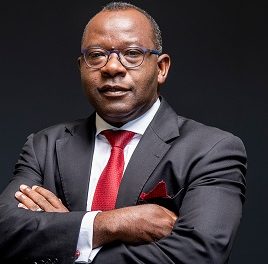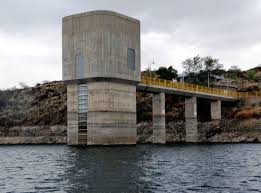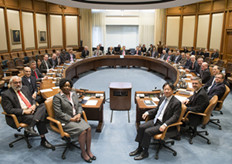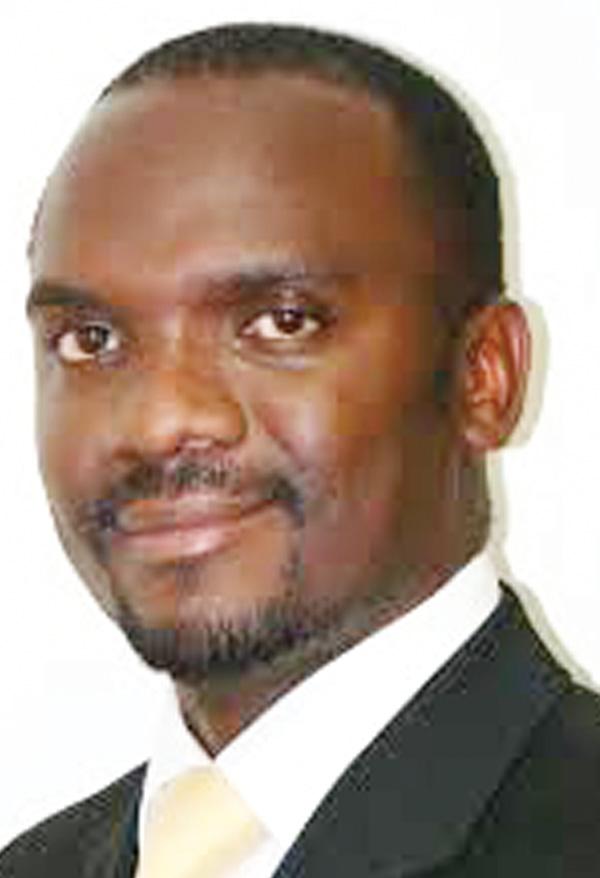
Much retail therapy anticipated for the new year

Windhoekers are roaming the shopping malls as if there is no tomorrow. The Economist trapped these keen shoppers as they were taking a lunch break earlier this week. A general mood of optimism was expressed by those resident hunting the shopping malls for new year specials. A noted economist expects 2014 to be better than 2013. (Photographed by Ogone Tlhage)
Commenting on prospects for the economy, independent economist Klaus Schade said he expects the economy to perform better than in 2013 owing to developments in the global economy which would lead to improved performance in the local mining industry. Commodity prices are expected to recover against a weak Rand which is expected to hover in the range of N$10.00 to N$10.50 to the US Dollar. He added that inflationary expectations are stable at this point, a situation likely to keep interest rates unchanged.
Schade expects the mining sector to perform better in comparison to 2013 in particular copper and zinc. He sees a spin-off for the construction industry from mining on account of the construction of the Husab uranium mine, the Otjikoto gold mine and the investment by Dundee Precious Metals in the sulphuric acid plant in Tsumeb. Although not all projects are expected to come on stream in 2014, the general expectation for increased output in mineral extraction, is positive.
Construction as an independent sector will also benefit massively from the gigantic Grove Mall project in Windhoek, and from the new FNB headquarters, also currently under construction in Windhoek’s CBD.
Furthermore, the manufacturing sector is expected to benefit as a consequence of the activities in the construction sector.
Regarding the services sector, Schade pointed out that the tourism sector would benefit from improved economic conditions in Europe and a weakening currency would further propel growth in this sector that is crucial for rural job creation. However, regarding agriculture, he feels that livestock farmers will maintain livestock herds or re–stock with the result that less livestock will be marketed and this is bound to have a negative effect on meat processing.
Schade feels that policy makers would have to look into the bureaucratic procedures that affect investment, particularly issues such as the registration of companies and the remittance of VAT claims. In terms of property, he calls for improved land delivery for both business and residential purposes. Looking at the social impact of government spending he says the government would need to strengthen the social safety net to reduce poverty and income inequality. Summing up the year 2013, Schade said the economy has performed below expectation owing to weak demand and weak metal prices. The drought affected the performance of the agricultural sector negatively but he pointed out that meat processing benefited from increased livestock marketing. The tourism sector performed poorly against a backdrop of a recessionary Europe. Construction performed well as a result of the ongoing private and public investment. Simonis Storm Securities expects the economy to show moderate growth as a consequence of the performance of the agricultural sector and the subsequent need for farmers to restock as well as a weakening rand that was expected to bolster mining revenues. They believe that efforts by the government to finalize the industrial policy as well as possible revisions to the procurement policy would lead the way in fostering growth pointing to the fact that the government is gearing itself to establish an open economy centred around Private Public Partnerships. Reviewing the year 2013, Simonis Storm pointed out that the drought had placed the agricultural sector under pressure, low commodity prices affected revenues in the mining sector in particular with regards to uranium.
















































